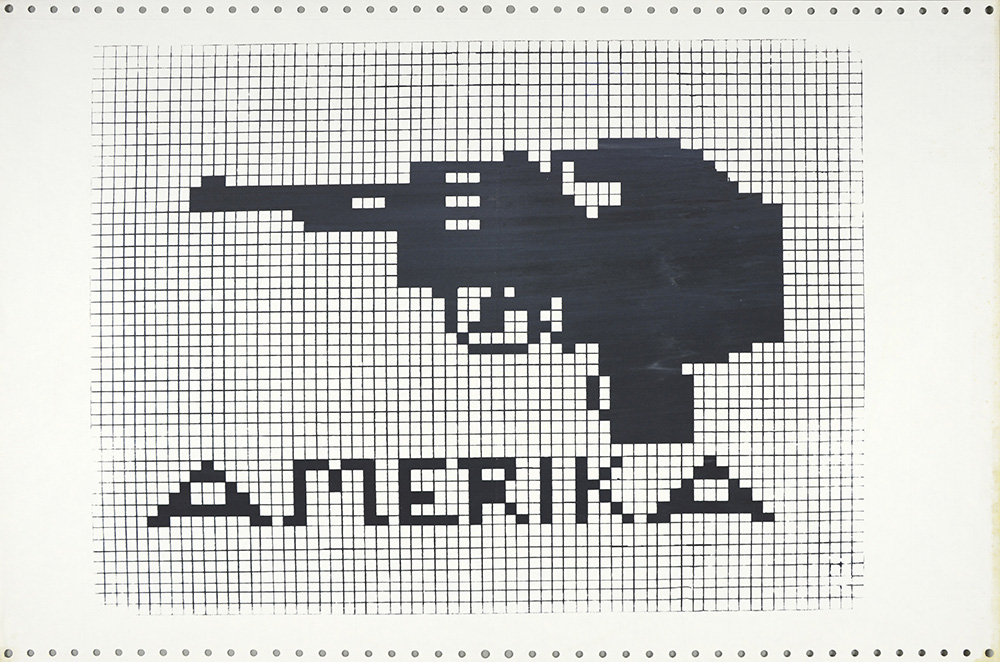In Pictures: Arresting protest art from 1970s US student activists
- Text by Adam White
- Photography by American Flag [Untitled], 1970. Courtesy Shapero Modern.

Berkeley University in California has long been associated with student activism. Starting with the free-speech protests and the beginnings of the counterculture movement in the 1960’s, to the week-long rallies against police violence in 2014, and everything in between.
The posters stem from demonstrations against a wave of militant conservatism in the early 1970’s. Not only the 1970 massacre of four unarmed students at Kent State University by members of the National Guard, but also the continued Vietnam War and President Nixon’s decision to reinstate the military draft.
The posters themselves are the work of the university’s Political Poster Workshop, a campus collective of art, design and politics students. In the wake of the Kent State killings, the group immediately launched a production line of silk-screening and cardboard printing for protest, with the 50 posters on display the last remaining relics of their demonstrations.
Barry Miles, curator of the exhibit, says that the posters are “a frozen snapshot of American graphic design at the end of the sixties, as well as a unique sociological record of a society in crisis.”
Find out more about America in Revolt: The Art of Protest, at Shapero Modern until February 27.
Enjoyed this article? Like Huck on Facebook or follow us on Twitter.
Latest on Huck

Clubbing is good for your health, according to neuroscientists
We Become One — A new documentary explores the positive effects that dance music and shared musical experiences can have on the human brain.
Written by: Zahra Onsori

In England’s rural north, skateboarding is femme
Zine scene — A new project from visual artist Juliet Klottrup, ‘Skate Like a Lass’, spotlights the FLINTA+ collectives who are redefining what it means to be a skater.
Written by: Zahra Onsori

Donald Trump says that “everything is computer” – does he have a point?
Huck’s March dispatch — As AI creeps increasingly into our daily lives and our attention spans are lost to social media content, newsletter columnist Emma Garland unpicks the US President’s eyebrow-raising turn of phrase at a White House car show.
Written by: Emma Garland

How the ’70s radicalised the landscape of photography
The ’70s Lens — Half a century ago, visionary photographers including Nan Goldin, Joel Meyerowitz and Larry Sultan pushed the envelope of what was possible in image-making, blurring the boundaries between high and low art. A new exhibition revisits the era.
Written by: Miss Rosen

The inner-city riding club serving Newcastle’s youth
Stepney Western — Harry Lawson’s new experimental documentary sets up a Western film in the English North East, by focusing on a stables that also functions as a charity for disadvantaged young people.
Written by: Isaac Muk

The British intimacy of ‘the afters’
Not Going Home — In 1998, photographer Mischa Haller travelled to nightclubs just as their doors were shutting and dancers streamed out onto the streets, capturing the country’s partying youth in the early morning haze.
Written by: Ella Glossop






